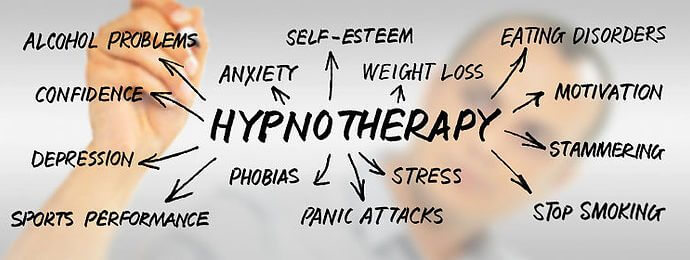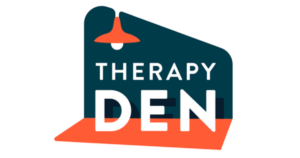Hypnotherapy Near Me:
Are you having trouble coping with stress?
Are you still feeling the aftershocks of a traumatic event?
When life throws you a curve ball, it’s natural to feel anxious, scared, depressed, or alone. But at Dr. V.’s office, we want to help. That’s why we offer Therapeutic Hypnosis for those in need.
We offer Therapeutic Hypnosis to promote better habits and lifestyles. We conduct our sessions in a warm, welcoming environment.
We offer Hypnosis Therapy Near Me for the following:
- Smoking cessation
- Weight reduction
- Stress management
- Stammering
- Life-enhancing skills
- Relaxation
- Pain management
- Anxiety
- Depression
- Compulsive behaviors
- Insomnia
- Motivation
- Artistic blocks
- Sports performance
- Fears – phobias
- Financial-professional success
- Male impotence and premature ejaculation
*Our services are not a replacement for medical care by your physician.


When Should You See a Hypnotherapist?
Debunking Myths About Hypnosis
In today’s whirlwind world of constant connectivity, the mind can often feel overloaded. With an influx of information, coupled with the challenges of daily life, more individuals are seeking alternative therapeutic modalities to find calmness, clarity, and healing. Enter hypnotherapy—a practice surrounded by curiosity and sometimes misconceptions. So, when exactly should you see a hypnotherapist? And what myths might be holding you back? Let’s delve deep into the transformative world of hypnotherapy with insights from Dr. V.
Understanding Hypnotherapy and Its Impact
At its core, hypnotherapy is a guided relaxation technique where a trained hypnotherapist helps you enter a state of focused attention and heightened suggestibility.
In Dr. V’s practice, many clients have reported significant improvements in their well-being after engaging in hypnotherapy sessions. Whether it’s a deep-seated phobia/fear, chronic pain, or anxiety, hypnotherapy offers a unique approach that can complement other therapeutic methods.
- Pain and Stress Management: Dr. V recalls a success story where a client, after several failed attempts with conventional therapies, found relief from chronic pain through hypnotherapy. Not only did they experience physical relief, but they also cultivated a stronger, more resilient mindset.
- Overcoming Phobias and Fears: Whether it’s fear of heights, flying, driving or even public speaking, hypnotherapy can help reframe and address these fears, creating a newfound sense of freedom.
- Habits and Addictions: From quitting smoking to curbing overeating, the potential of hypnotherapy in habit control is promising.
- Boosting Confidence: Whether for public speaking, test-taking, or improving self-esteem, hypnotherapy has shown promising results.
- Sleep Issues: People struggling with insomnia or other sleep disorders might find relief through hypnotherapy sessions.
Debunking Myths About Hypnosis
Myth 1: Hypnosis is a form of mind control.
Reality: You always remain in control during a session and can’t be made to do something against your will. Hypnotherapy is about empowerment, not control.
Myth 2: Only the weak-minded can be hypnotized.
Reality: Hypnotherapy has nothing to do with the strength of one’s mind. It’s about concentration and the ability to relax. It’s about allowing oneself to enter a state of deep relaxation and focus.
Myth 3: You can get “stuck” in a hypnotic state.
Reality: This is a Hollywood-created myth. It’s impossible to remain stuck in hypnosis. No one has ever remained stuck in a hypnotic state.
Myth 4: Hypnotherapy is a “magic cure”.
Reality: While powerful, it’s a therapeutic tool that works best in conjunction with other modalities and a genuine desire to change.
Taking the Next Step
If you’ve ever wondered, “Where can I find the best hypnotherapist in Houston?” or sought “hypnosis near me”, you’re already on the path to discovery. Taking charge of your mental and emotional health is empowering. Consider exploring hypnotherapy with a licensed therapist like Dr. V, who can guide you through the process, ensuring safety and efficacy.
Schedule a free 15-minute phone call with Dr. V today for personalized guidance and support on your hypnotherapy journey.
Frequently Asked Questions
1. What’s the difference between a hypnotherapist and a hypnotist? A hypnotherapist is a trained professional who uses hypnosis for therapeutic purposes. A hypnotist might use hypnosis for entertainment, such as in stage shows.
2. Is hypnotherapy safe? Yes, hypnotherapy is a safe and non-invasive therapeutic approach.
3. Is hypnosis like what I see in movies? No, movie portrayals are often exaggerated. Real hypnotherapy is about relaxation and focused attention.
4. How many sessions will I need? The number of sessions varies based on individual needs. Dr. V assesses and provides guidance tailored to each person.
5. Will I reveal personal secrets under hypnosis? No, hypnotherapy is a consensual process. You remain in control and won’t share anything you don’t wish to.
6. How do people describe the hypnotic experience? Most individuals describe hypnosis as a deeply relaxed state where they feel calm and centered. While experiences can vary, many liken it to the sensation just before falling asleep, where the mind is at ease. It’s important to note that while under hypnosis, individuals remain conscious and aware of their surroundings, but they’re simply more receptive to positive change.
7. Will I remember everything from the session? Most people recall their hypnotherapy sessions. It’s akin to a state of deep relaxation where you’re fully aware but deeply relaxed.
8. How do I find the best hypnotherapy near me? Look for a licensed therapist who might have education in counseling, psychology, and psychotherapy. Dr. V, for instance, is a licensed therapist with training and experience in hypnosis and is a well-known hypnotherapist near Sugar Land, TX.
Are you intrigued by the potential benefits of hypnotherapy? If you’re searching for “hypnotherapy near me”, “best hypnotherapist in Houston” or specifically in the “hypnotherapy near Sugar Land, TX” region, consider scheduling a free 15-minute call with Dr. V. Embark on your journey towards enhanced emotional health today: Schedule your call with Dr. V.

Demystifying Hypnosis: Understanding the Science of Hypnosis
Hypnosis, often misunderstood as an uncanny trick of illusionists, is steadily gaining scientific recognition for its remarkable therapeutic potential. Rooted in the profound understanding of the mind-body connection, hypnosis represents an underexplored, yet powerful, resource in our healthcare toolkit.
Hypnosis describes a trance-like state of intensified concentration and focus, often induced by a licensed therapist using verbal repetition. In this state, individuals commonly experience calm, relaxation, and heightened receptiveness to suggestions.
No Hypnosis Against Your Will
A hypnotic state cannot be forced upon an individual, and people maintain control over their actions while under hypnosis. In fact, the willingness of the participant is a key component of the process. Hypnosis requires the full consent and active participation of the person being hypnotized. Individuals can resist suggestions that go against their values or comfort zone. Hypnosis, when conducted by a qualified licensed professional, is a safe, controlled, and consensual process.
The Role of Hypnotherapy in Psychotherapy
It’s critical to note that hypnotherapy is generally considered an adjunct to psychotherapy, rather than a standalone treatment.
How does hypnotherapy work?: Neuroscientific Evidence of Hypnosis
Modern neuroimaging techniques such as functional magnetic resonance imaging (fMRI) have played a crucial role in illustrating how hypnosis affects the brain. In trance-like states, context-specific suggestions can differentially modulate activity in specific brain areas. For instance, suggestions to downregulate pain signals can reduce activity in the somatosensory cortex, the area of the brain that registers pain intensity (Rainville, Carrier, Hofbauer, Bushnell, Duncan, 1999).
Similarly, hypnotic suggestions intended to reduce the emotional suffering caused by pain can decrease activity in the anterior cingulate cortex, a separate brain area associated with emotional processing. This research highlights the power of hypnosis to change our brain’s response to pain signals.
Hypnosis and Bodily Functions
Beyond pain management, fMRI studies have shown that hypnosis can influence various bodily functions. Hypnotic suggestions can modulate blood flow, gastric secretions, blood pressure, and respiration. Notably, individuals with high hypnotic capacity demonstrate greater functional connectivity between executive control networks and the salience network’s insula, a brain region that modulates bodily states. This implies that hypnosis taps into and enhances our innate capacity to influence our body’s functions.
Does hypnosis really work? What can hypnotherapy fix?: Applications of Hypnosis in Therapy
Therapeutic hypnosis, or hypnotherapy, has shown to be beneficial in numerous areas:
Pain Management: Hypnosis has been widely used in managing chronic pain conditions. A meta-analysis by Patterson and Jensen (2016) found that hypnosis interventions consistently lead to significant reductions in pain associated with a variety of chronic pain conditions.
Anxiety and Stress Reduction: Hypnosis can help individuals manage anxiety, stress, and depression. A study by Hammond (2010) revealed hypnosis as a potent tool in decreasing anxiety and stress symptoms, thus improving overall mental health.
Panic Attacks: Hypnotherapy can be beneficial in managing panic disorder by helping individuals cope with and reduce feelings of anxiety. A review by Golden (2006) suggested that hypnotherapy could be an effective component of treatment for anxiety disorders.
Post-Traumatic Stress Disorder (PTSD): Hypnotherapy can be a useful tool in treating Post-Traumatic Stress Disorder (PTSD). Hypnosis can help individuals with PTSD by providing them with a safe space to face and process traumatic memories, reduce anxiety, and improve coping mechanisms. A clinical report by Abramowitz, Barak, Ben-Avi, and Knobler (2008) studied the use of hypnotherapy for PTSD in war veterans. They found that participants using hypnotherapy showed significant improvements in their PTSD symptoms. Moreover, a study by Brom, Kleber, and Defares (1989) showed that trauma-focused treatments, including hypnotherapy, resulted in significant reductions in PTSD symptoms.
Specific Phobias: Hypnotherapy can also effectively manage specific fears and phobias, including fear of flying, bugs, driving on freeways, dentists, and crowds. It works by helping individuals to change their perception of the fear stimulus, inducing a relaxed state, and enabling them to approach their fears in a more balanced way.
Behavioral Changes: Hypnosis has also shown significant promise in managing addictions, which are notoriously challenging to treat. Hypnosis can be used to help individuals change undesired behaviors such as smoking or overeating. A review by Lynn et al. (2007) confirmed that hypnosis can significantly boost the success rate of treatments for smoking cessation and weight loss. For instance, in smoking cessation, single session hypnosis has shown a success rate of 17 to 25% at a 6-to-12-month follow-up, comparable to non-hypnotic interventions. Importantly, four or five sessions of hypnosis can increase the success rate to as high as 64% at a one-year follow-up, outperforming many non-hypnotic interventions.
Sleep Disorders: Hypnotherapy has been employed successfully to treat conditions like insomnia, helping individuals cultivate healthier sleep patterns. A study by Graci and Hardie (2007) demonstrated the positive impact of hypnotherapy on sleep quality and sleep patterns. Their study on college students with insomnia found that participants who received hypnotherapy improved their sleep hygiene, reduced their wake time, and increased their sleep time. Furthermore, a review by Lam (2015) found that hypnotherapy could be a safe and effective treatment for insomnia, particularly when integrated with cognitive-behavioral therapy.
Pre- and post-surgery: There is scientific evidence that supports the use of hypnotherapy both pre- and post-surgery to alleviate anxiety, reduce pain, and improve recovery times. A significant study conducted by Montgomery et al. (2007) demonstrated that patients who received hypnosis prior to breast cancer surgery experienced less post-surgery pain, nausea, fatigue, and emotional distress compared to patients who received standard care. Another study by Ginandes and Rosenthal (1999) revealed that patients who underwent hypnotherapy had a significantly faster recovery after surgical procedures. The study involved patients who were recovering from fracture repair surgery, and the results suggested that hypnosis might enhance the speed and extent of wound healing. Also, Lang et al. (2000) conducted a randomized controlled trial which found that patients trained with self-hypnosis pre-surgery required less medication post-surgery, had fewer side-effects, and reported higher levels of satisfaction with their medical care.
Sexual Dysfunctions: Hypnotherapy can play a vital role in managing sexual dysfunctions such as erectile dysfunction and premature ejaculation. It can assist individuals in reducing performance anxiety, boosting self-confidence, and improving their sexual health. A review by Vardi, Nini (2006) suggests that psychological treatments, including cognitive-behavioral therapy and hypnosis, can be effective for premature ejaculation, especially when the condition is primarily due to psychological factors. Moreover, a study by de Carufel and Trudel (2006) found hypnotherapy to be potentially beneficial for men experiencing sexual dysfunction, including premature ejaculation and erectile dysfunction. The research showed that after treatment, men had significant improvements in sexual satisfaction and performance.
Headaches: Hypnotherapy can be effective in managing various types of headaches, including tension headaches and migraines. A systematic review by Hammond (2007) found that hypnosis interventions consistently produce significant decreases in the intensity of headaches.
Skin conditions like Psoriasis and Warts: Hypnosis can be helpful for psoriasis, an autoimmune skin condition. A study by Tausk and Whitmore (1999) suggested that stress reduction through hypnosis could improve psoriasis outcomes. Also, there is evidence to suggest that hypnotherapy can help in treating warts. A study by Ewin (1992) demonstrated that hypnosis could be an effective treatment for warts resistant to other forms of treatment.
Irritable Bowel Syndrome (IBS): Several clinical trials have found that hypnotherapy can be beneficial for managing IBS symptoms. Palsson and Whitehead (2013) reported that hypnotherapy offered a broadly effective treatment option for IBS patients, leading to significant symptom reduction and improvement in quality of life.
Enhancing Learning and Memory Recall: Research conducted by Baker and Nash (2008) found that hypnosis could enhance the academic performance of students, particularly in areas such as study habits and cognitive processing. In another study, researchers like Crawford and Allen (1983) have suggested that hypnosis can positively influence cognitive control and memory, enhancing the ability to recall information.
In summary, while hypnosis cannot force someone into actions against their will, it holds considerable potential to assist in various therapeutic contexts.
As a licensed psychotherapist and a professional trained in hypnotherapy, I bring years of experience in providing hypnotherapy to my clients. If you are ready and motivated for change or to work on your issue or condition, then we can work as a team. I firmly believe in the power of teamwork and collaboration in therapy. Together, we can explore this journey of leveraging hypnosis for a more fulfilling and enriched life. If you’re curious about how hypnosis can help you, feel free to reach out. Schedule your free 15-min call with me here, and let’s embark on this transformative journey together.

The Power of Pre-Surgery Hypnotherapy
A blog post discussing the benefits of using hypnotherapy before surgery to reduce anxiety, manage pain, and enhance recovery.
Preparing for surgery can be a nerve-wracking experience for many individuals. The thought of going under the knife can bring about feelings of anxiety, fear, and uncertainty. That’s where pre-surgery hypnotherapy comes in. Pre-surgery hypnotherapy has gained recognition as a powerful complementary approach to traditional medical procedures. By harnessing the power of the mind, this technique aims to prepare individuals mentally and physically for surgery.
What to expect during a pre-surgery hypnosis session?
By working with Dr. V., individuals can enter a relaxed and focused state of consciousness, allowing them to better cope with the upcoming surgery. During sessions, Dr. V. guides individuals into a relaxed state, where they can access their subconscious mind more readily. This state of deep relaxation allows the individual to tap into their inner resources and make positive changes in their thoughts, emotions, and behaviors surrounding the upcoming surgery.
What are the benefits of pre-surgical hypnosis sessions?
Does pre-surgery hypnotherapy help reduce anxiety and fear?
One key benefit of pre-surgery hypnotherapy is the reduction of preoperative anxiety and fear. For instance, a 2016 study published in the Journal of Clinical and Diagnostic Research found that hypnotherapy significantly reduced preoperative anxiety in surgical patients. By addressing these anxieties through hypnotherapy, individuals can experience a sense of calmness and inner peace, thereby increasing their ability to cope with the upcoming procedure.
Enhancing Physical and Mental Preparation
Moreover, pre-surgery hypnotherapy can help individuals enhance their physical and mental preparation for surgery. Hypnotic suggestions and visualization techniques can be utilized to facilitate the healing process, boost the immune system, and promote a positive mindset. By visualizing the successful outcome of the surgery, individuals can cultivate a sense of confidence and empowerment, which can contribute to a more positive surgical experience.
Empowering Patients in the Healing Process
Pre-surgery hypnotherapy can empower patients to actively participate in their healing process. By instilling positive suggestions and affirmations, hypnotherapy can boost confidence, resilience, and overall well-being. This mental preparation can have a profound impact on the individual’s mindset and their ability to bounce back from surgery.
Facilitating a Smooth Recovery Process
Another potential benefit of pre-surgery hypnotherapy lies in its ability to facilitate a smooth recovery process. By reducing stress levels and promoting relaxation, this technique may aid in pain management, reduce postoperative complications, and accelerate the healing process.
Supporting Postoperative Care
Additionally, hypnotherapy can assist individuals in adopting healthy lifestyle changes and adhering to postoperative instructions, further optimizing their recovery.
A Complementary Approach
It is important to note that pre-surgery hypnotherapy should always be seen as a complementary approach and should not replace medical advice or interventions.
Dr. V’s Practice: Real-World Benefits
In Dr. V’s practice, numerous patients have experienced the transformative power of pre-surgery hypnotherapy. One notable case involved a patient with extreme anxiety about an upcoming surgery. Through hypnotherapy, the patient found a newfound sense of calm and went into surgery more relaxed and confident. Post-surgery, the patient reported less pain and a quicker recovery, attributing these positive outcomes to the pre-surgery hypnotherapy sessions.
Frequently Asked Questions
1. Is pre-surgery hypnotherapy safe? Absolutely. It’s a non-invasive, safe approach to mental preparation for surgery, and it complements traditional medical care.
2. How does hypnotherapy reduce pain perception? Hypnotherapy works by altering the way your brain perceives pain, essentially ‘reprogramming’ your response to pain stimuli, leading to a more manageable experience.
3. Can anyone undergo pre-surgery hypnotherapy? Most people can benefit from pre-surgery hypnotherapy. However, a consultation with Dr. V will help determine its suitability for your specific needs.
4. How many sessions are needed before surgery? The number of sessions varies depending on individual needs. Dr. V can provide a tailored plan after an initial consultation.
5. Does hypnotherapy replace anesthesia or other medical procedures? No, it’s designed to complement, not replace, traditional medical care. It’s an adjunct tool for enhancing overall well-being before and after surgery.
6. Can hypnotherapy help with fear of anesthesia? Yes, hypnotherapy can be very effective in addressing specific fears, including the fear of anesthesia.
7. Is there scientific evidence supporting pre-surgery hypnotherapy? Numerous studies, including the 2016 research in the Journal of Clinical and Diagnostic Research, provide evidence of its effectiveness in reducing anxiety and improving surgical outcomes.
8. Can pre-surgery hypnotherapy be beneficial for all types of surgeries? Generally, yes. It’s beneficial for a wide range of surgeries, helping patients manage anxiety, pain, and aiding in recovery.
In conclusion, pre-surgery hypnotherapy offers a fascinating approach to prepare individuals mentally, emotionally, and physically for surgical procedures. By addressing anxieties, promoting relaxation, and enhancing overall well-being, it has the potential to contribute positively to the surgical experience and subsequent recovery. If you’re considering undergoing surgery, it may be worth exploring the potential benefits of pre-surgery hypnotherapy as part of your preparation process.
Embrace the Benefits of Pre-Surgery Hypnotherapy
If you’re considering surgery or know someone who is, exploring the benefits of pre-surgery hypnotherapy could be a transformative decision. Remember, it’s not just about the physical preparation but also about ensuring mental and emotional readiness. Schedule a free 15-minute phone call with Dr. V to discuss how hypnotherapy can benefit you or your loved ones. Start your journey towards a more relaxed and positive surgical experience. Book your appointment here: Let’s Talk with Dr. V.
Scheduling an appointment has never been so easy
> The best way to set up an appointment is to schedule a free 15-minute call.
To set up a free 15-minute call, please click on the “Let’s Talk” or "Get Started" button below and fill out the form. Dr. V will call you at the time you have specified on the form. The information you provide on this form will remain confidential and secure.
Dr. V will help answer questions about his services and therapy in general. This free 15-minute call does not establish a therapist-client/patient relationship as this is not counseling and/or life coaching.
If we mutually find that our services work well for you, we’ll schedule a time to have an initial appointment. You’ll get a link to fill out intake forms using our secure client portal. You can create a free account on our secure EMR (Electronic Medical Record) system.
> We offer evening and Saturday appointments!
> Interested in starting your journey towards a better self with your very own counselor therapist in Sugar Land, TX?








